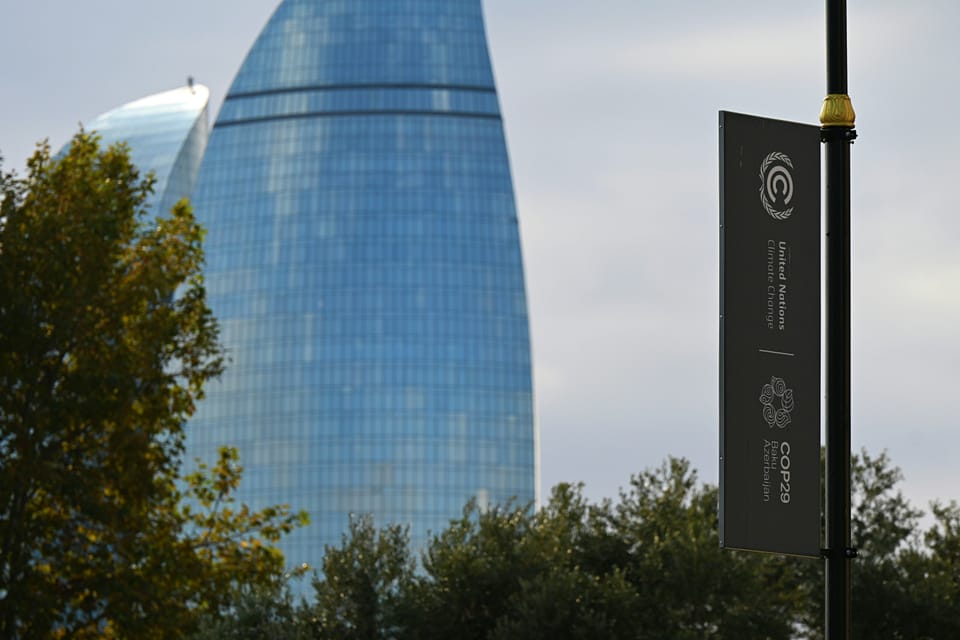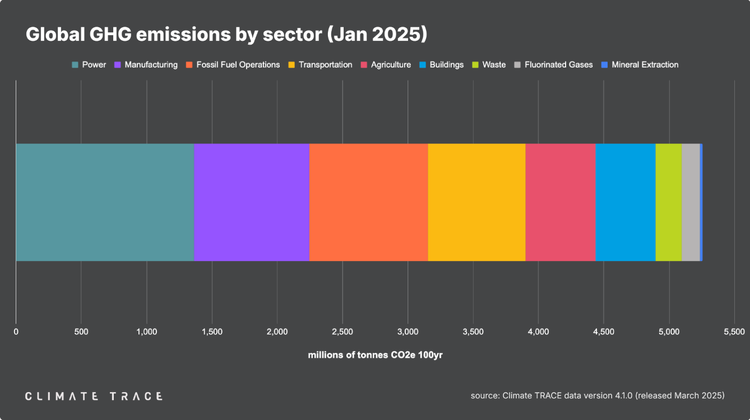Climate leaders call for overhaul of COP governance

A group of senior global climate leaders are calling for COP conferences to exclude countries not committed to phasing out fossil fuels and to become more focused on the delivery and implementation of climate goals.
The group of more than 22 scientists, former ministers and current presidents and CEOs of business-led climate associations sent an open letter to UN Secretary General António Guterres on November 15, at the end of the first week of COP29 in Baku, Azerbaijan.
In it, they concede that the past 28 years of climate negotiations have created “remarkable consensus” to limit global warming to 1.5ºC, and helped to establish a global policy framework to make this goal a reality – but point out that greenhouse gas emissions have continued to increase.
“[COP’s] current structure simply cannot deliver the change at exponential speed and scale, which is essential to ensure a safe climate landing for humanity,” they argue. “This is what compels our call for a fundamental overhaul of the COP. We need a shift from negotiation to implementation, enabling the COP to deliver on agreed commitments and ensure the urgent energy transition and phase-out of fossil energy.”
COP host countries should ‘demonstrate ambition’
Their first recommendation is to improve the eligibility criteria for countries to participate – and of course – to host – the annual UN climate conference. Host countries should “demonstrate their high level of ambition to uphold the goals of the Paris Agreement”, while COPs should simply exclude countries who do not support the phase out of fossil fuels, the letter states.
In addition, the leaders expressed concern over the increasing attendance of fossil fuel lobbyists at COPs, who are now more numerous than official representatives from scientific institutions, Indigenous communities and vulnerable nations. To remedy this, they called for stronger transparency and disclosure rules a requirement for companies wanting to attend to “demonstrate alignment between their climate commitments, business model and lobbying activities”.
The call comes after the last two COPs were hosted by petrostates (the UAE and Azerbaijan) and presided by oil and gas industry veterans – decisions that have massively dampened the enthusiasm of those committed to driving action during the summits.
This year’s COP29 has been plagued by controversies, with one Chief Executive Officer Elnur Soltanov caught on camera using his position at the climate conference to promote oil and gas deals, and Azerbaijan President Ilham Aliyev calling oil and gas “a gift from God”.
Shifting ‘from negotiations to delivery’
The letter signatories also believe COPs should move from their annual mega-conference format (more than 50,000 people were expected to attend COP29 in Baku), to “smaller, more frequent, solution-driven meetings where countries report on progress, are held accountable in line with the latest science, and discuss important solutions for finance, technology and equity”.
This would represent a shift from negotiations to “the delivery of concrete action”, and support faster adjustments to take into account changing global circumstances, they add.
As part of this focus on delivery, the climate leaders are urging the UN to create mechanisms to hold countries accountable for their climate targets and commitments, also known as their nationally determined contributions or NDCs under the Paris Agreement.
“The Global Stocktake process is an important start but it must be strengthened with enhanced reporting and benchmarking, rigorous peer-review processes, independent scientific oversight and transparent tracking of pledges and action,” the letter explains.
Climate finance, science, and equity
Another area that climate leaders believe should be tracked more robustly is climate finance, since they note that “a growing proportion of climate financing pledges are now being disbursed as interest-bearing loans, thereby exacerbating the debt burden for climate vulnerable nations”.
They suggest the creation of standardised definitions and criteria, as well as common reporting frameworks and tracking mechanisms.
In addition, they would like COP to follow the example set by its biodiversity-focused counterpart (the most recent summit being COP16) and have its own permanent scientific advisory body, providing a technical and scientific underpinning for the conferences.
They also call for a climate poverty policy envoy to be integrated into COP governance to ensure critical links between poverty, inequality and planetary instability are “anchored in the negotiations and implementation actions”.







Member discussion